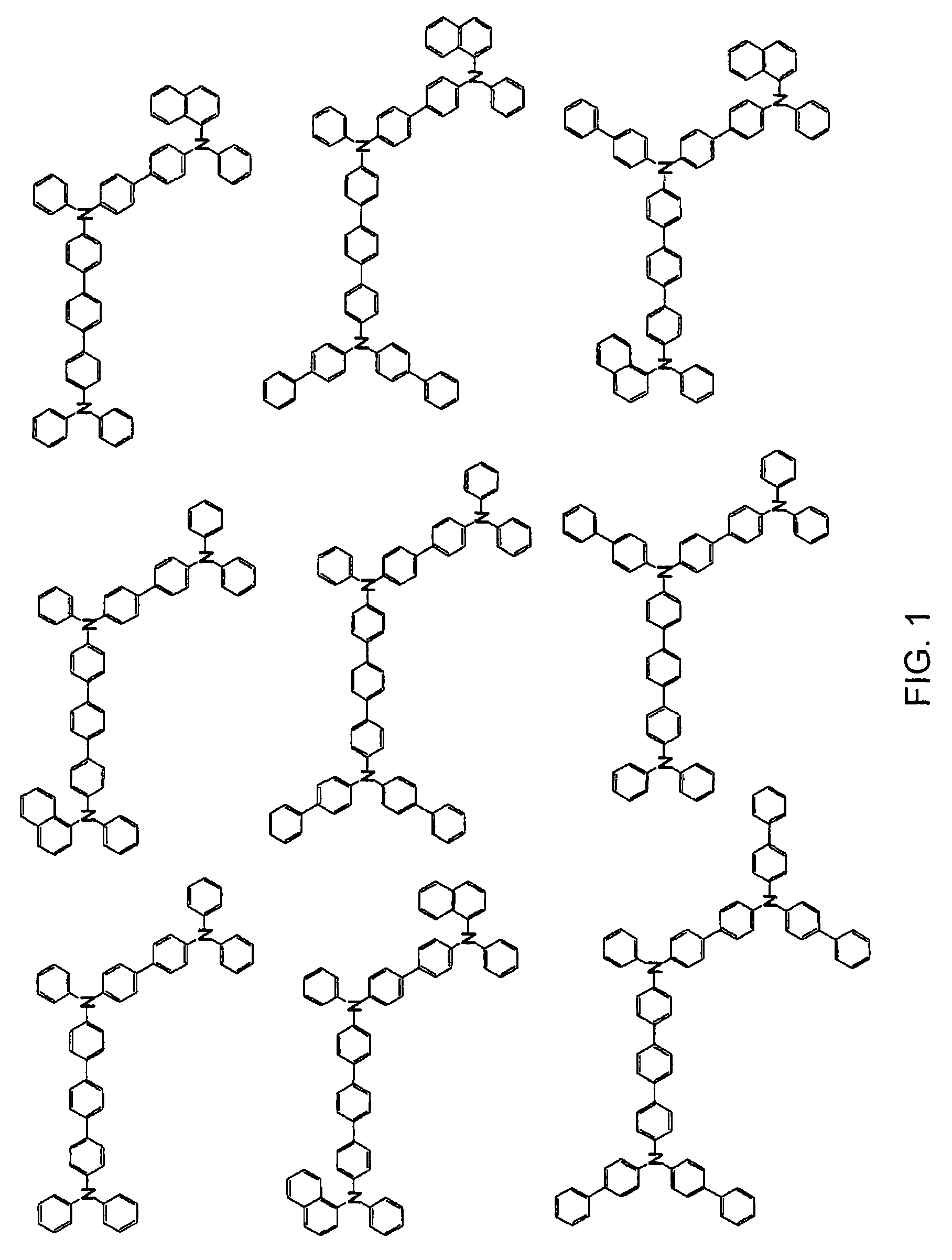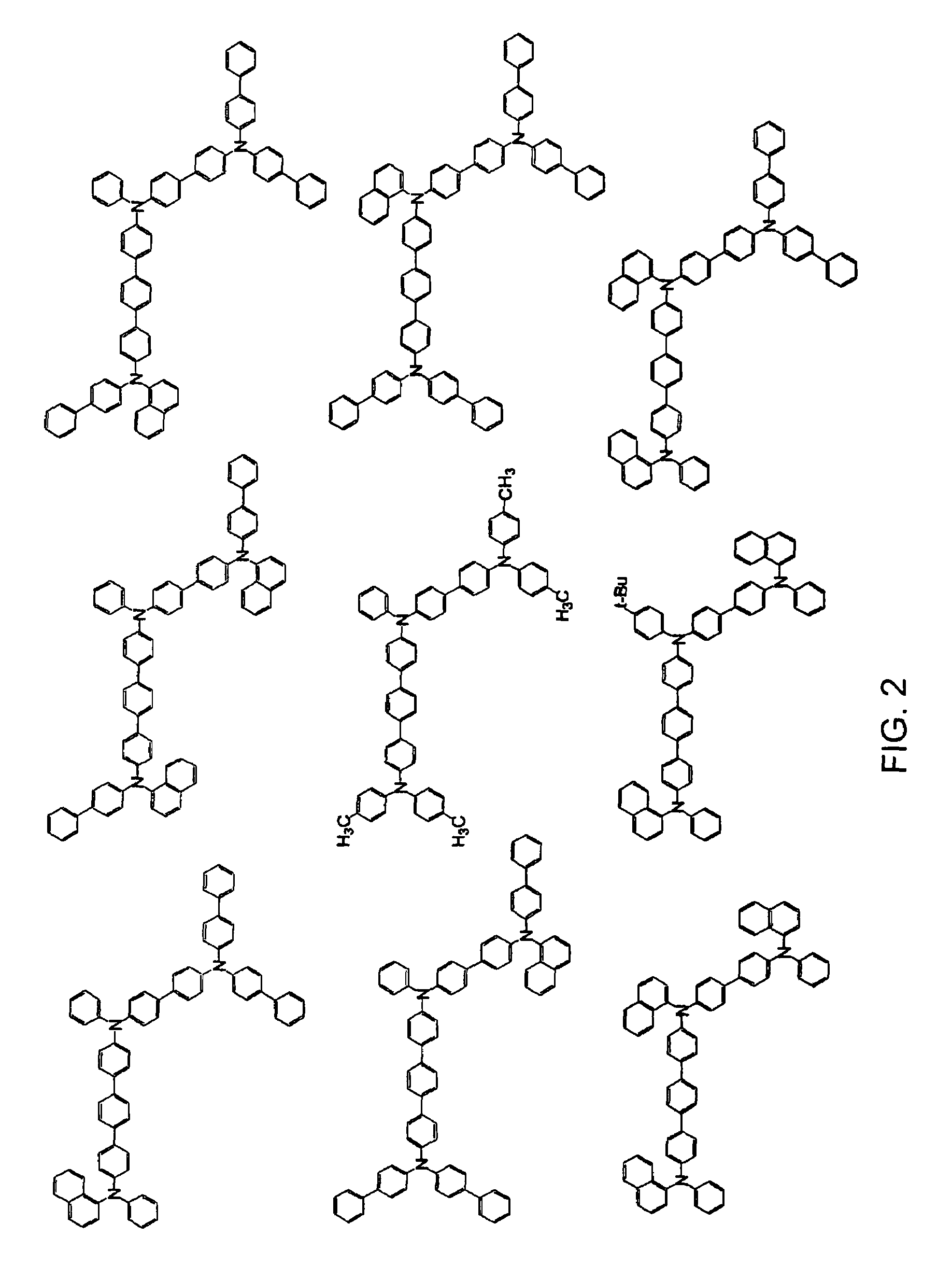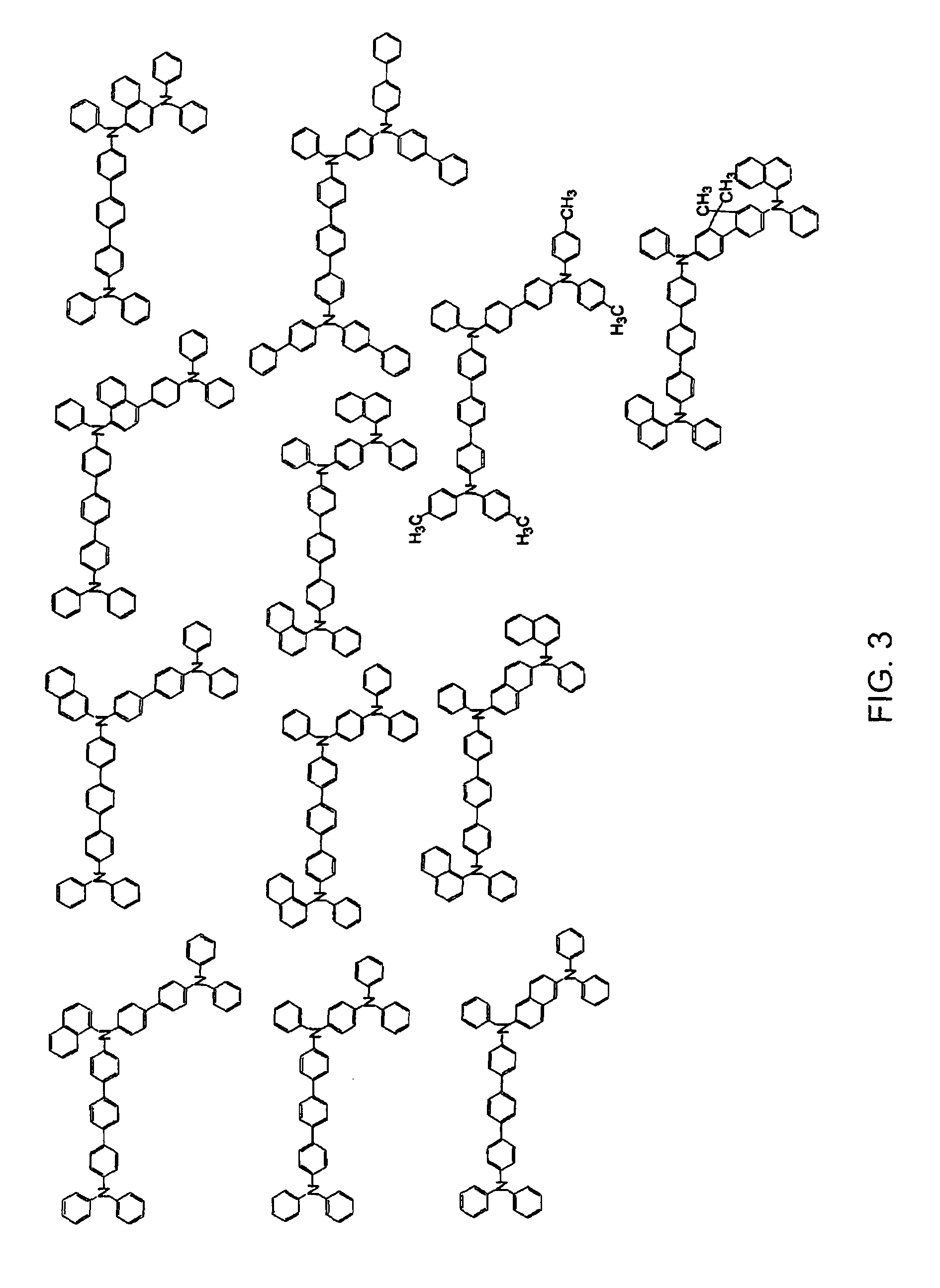Aromatic triamine compound and organic electroluminescence device using the same
a triamine compound and organic technology, applied in the field of aromatic triamine compound and organic electroluminescence device, to achieve the effect of excellent hole injection property, long life and high luminous efficiency
- Summary
- Abstract
- Description
- Claims
- Application Information
AI Technical Summary
Benefits of technology
Problems solved by technology
Method used
Image
Examples
synthetic example 1
Synthesis of Aromatic Triamine Compound 1
[0169]The following compound 1 was synthesized by the following reaction process:
[0170]
(1) Synthesis of 4,4″-dibromo-p-terphenyl
[0171]Toluene 600 ml and a 2M sodium carbonate aqueous solution 300 ml were added to 1,4-diiodobenzene 33.0 g, 4-bromophenylboronic acid 48.2 g and tetrakis(triphenylphosphine)palladium (0) 4.62 g under argon atmosphere, and the mixture was refluxed for 10 hours under heating.
[0172]After finishing the reaction, the mixture was immediately filtered, and the aqueous layer was removed. The organic layer was dried on sodium sulfate and then concentrated. A solid matter thus obtained was recrystallized from toluene to obtain 32.6 g of white crystal of 4,4″-dibromo-p-terphenyl (yield: 84%)
(2) Synthesis of 4-bromo-4″-diphenylamino-p-terphenyl
[0173]Charged under argon flow were N,N-diphenylamine 10.6 g, 4,4″-dibromo-p-terphenyl 24.3 g, potassium carbonate 13.0 g, copper powder 0.400 g and decalin 40 ml, and they were reacted...
synthetic example 2
synthesis of Aromatic Triamine Compound 2
[0177]The following compound 2 was synthesized by the following reaction process:
[0178]
[0179]The compound 2 was synthesized by the same method, except that in Synthetic Example 1, N-phenyl-1-naphthylamine was used in place of N,N-diphenylamine. This compound was analyzed by a mass spectrum to result in finding that it was the targeted product and that m / e was 983 versus a molecular weight of 983.42.
synthetic example 3
Synthesis of Aromatic Triamine Compound 3
[0180]The following compound 3 was synthesized by the following reaction process:
[0181]
[0182]The compound 3 was synthesized by the same method, except that in Synthetic Example 2, 1,3-diiodobenzene was used in place of 1,4-diiodobenzene. This compound was analyzed by a mass spectrum to result in finding that it was the targeted product and that m / e was 983 versus a molecular weight of 983.42.
PUM
| Property | Measurement | Unit |
|---|---|---|
| work function | aaaaa | aaaaa |
| thickness | aaaaa | aaaaa |
| thickness | aaaaa | aaaaa |
Abstract
Description
Claims
Application Information
 Login to View More
Login to View More - R&D
- Intellectual Property
- Life Sciences
- Materials
- Tech Scout
- Unparalleled Data Quality
- Higher Quality Content
- 60% Fewer Hallucinations
Browse by: Latest US Patents, China's latest patents, Technical Efficacy Thesaurus, Application Domain, Technology Topic, Popular Technical Reports.
© 2025 PatSnap. All rights reserved.Legal|Privacy policy|Modern Slavery Act Transparency Statement|Sitemap|About US| Contact US: help@patsnap.com



